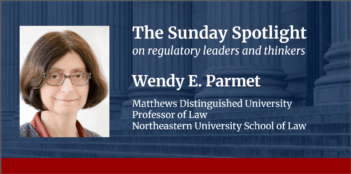
Employers should adopt clear, consistent policies for the coronavirus and carefully consider accommodations.
The novel coronavirus has brought with it changes to workplace medical testing. As policymakers work on plans to distribute COVID-19 vaccines, employers are now questioning the permissibility of mandatory COVID-19 vaccinations.
The Equal Employment Opportunity Commission (EEOC) has provided some guidance on COVID-19 testing; however, there is no current guidance or rule on mandatory COVID-19 vaccinations. The EEOC has issued prior guidance on mandatory flu vaccination, which suggests that any vaccinations for COVID-19 should be recommended rather than mandatory.
Still, with the substantial impact of COVID-19 and the virus’s highly contagious nature, many employers may choose mandatory testing or mandatory vaccination once available. To help employers comply with the law, we propose guidelines for testing and vaccination in the workplace.
Testing. Mandatory medical testing in the workplace is governed by the Americans with Disabilities Act (ADA), which is intended to protect applicants and employees from disability discrimination. In March 2020, in response to the COVID-19 pandemic, the EEOC updated its guidance on pandemic preparedness, which describes acceptable COVID-19 testing practices. Under the ADA, all medical examinations or questions that may elicit information about a disability must be job-related and consistent with business necessity. Generally, these qualifications are met if an employer “has a reasonable belief, based on objective evidence, that: an employee’s ability to perform essential job functions will be impaired by a medical condition; or an employee will pose a direct threat due to a medical condition.”
A direct threat is defined as “a significant risk of substantial harm to the health or safety of the individual or others that cannot be eliminated or reduced by reasonable accommodation.” The Centers for Disease Control and Prevention (CDC) has determined that the COVID-19 pandemic meets the “direct threat” standard, opening the door to mandatory testing in the workplace that is compliant with ADA guidelines.
Although mandatory testing is allowed, employers should develop consistent, objective internal policies related to COVID-19 testing. Testing only certain groups of employees can subject an employer to a discrimination claim if the lines are drawn based on protected classes. Employers must also consider individuals who refuse to test and determine what accommodations may exist for them.
The ADA requires reasonable accommodation for individuals that request one based on an ADA-covered disability. Employers must make an accommodation unless it would pose an “undue hardship” for the employer, defined as “an action requiring significant difficulty or expense” when considering the nature and cost, resources available, and operation of the business. Undue hardship is a relatively high threshold, and the EEOC cautions that accommodations may not be rejected solely because they cost money; employers must weigh costs against their available budgets.
Individuals that request an accommodation based on religious belief face a lower standard, allowing employers to deny an accommodation that is more than a “de minimis cost” to the business operations. Furthermore, employers are not required under the ADA to provide individuals who request an accommodation based on a personal belief, rather than religious or disability accommodation. All refusals, however, should be documented to comply with Occupational Safety and Health Administration guidance on maintaining a safe, COVID-free workplace.
Allowed medical examinations under EEOC guidance may include asking questions about the symptoms listed by the CDC and testing for COVID-19 (but not antibody testing). Any of the options selected require all medical information gathered to be kept confidential, and the ADA requires that employees’ medical information be stored separately from existing employee personnel files.
Vaccination. Vaccines for COVID-19 are starting to become available—but the EEOC has yet to issue guidance on what employers may be able to demand when they do become more widely available. The EEOC, however, has indicated that its position on mandatory flu vaccination would likely also apply to a COVID-19 vaccine, providing some guidance. Employers can mandate flu vaccinations; some states already mandate them for certain industries such as health and education, as do some private employers. As with mandatory testing, the right to mandate vaccination is limited, and employers should understand the required exemptions.
The legal framework is similar to the exceptions from mandatory testing. Individuals may refuse a mandatory vaccination on the basis of an ADA-covered disability or a sincerely held religious belief, practice, or observance. In either situation, substantial documentation and interactive communication with the employee are necessary to determine whether an accommodation is available and whether the employee’s request requires such accommodation.
Employers may make the following accommodations: additional personal protective equipment, change in workstation or assignment, teleworking, or even a leave of absence. As with testing, an accommodation is not required if it causes an undue hardship. Accommodations are also not required for medical exemptions, such as an allergy, but employers may make such accommodations. In addition, employers with union employees should review collective bargaining agreements for any relevant consent requirements.
Some states have provided exemptions from vaccinations for individuals with personal beliefs. Those exemptions may also apply to COVID-19 vaccines.
As with testing, employers can refuse to accommodate disabilities if they have a reasonable belief that the employee causes a “direct threat” to the organization. Employers should create objective and consistently applied policies on which to base such determinations. These policies should educate employees on expectations, provide information on available exemptions and the process to request an exemption, and outline a clear confidentiality statement and privacy procedures.
Health, education, and hospitality industries are already familiar with mandatory vaccination protocols for the flu, and they are well-situated to apply those same policies to COVID-19 vaccinations. But as COVID-19 has a greater national impact—and given its highly contagious nature—more industries may implement a mandatory vaccine policy, some for the first time.
Longstanding fears of infringing on individual rights, as well as the legal consequences of infringement, weigh on employers. To prevent rights-based issues from occurring, employers should review any updates to EEOC guidance that may come out as vaccines start to become more available.
All medical records must be kept confidential for individuals who receive a vaccine—whether getting the vaccine at work or providing proof of compliance. The ADA mandates that any medical records obtained must be kept separate from employee personnel records.
As the COVID-19 pandemic continues, many employers face challenges with re-opening and returning to work. They may reasonably consider mandatory testing and vaccination as part of their reopening strategy. If employers implement mandatory testing or mandatory vaccination, they should adopt a clear, consistently applied policy that follows EEOC guidance and seriously considers any appropriate requests for accommodations.





